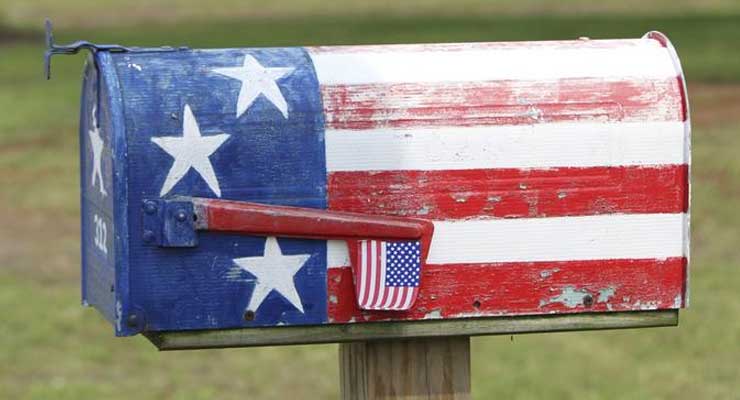 There should be nothing controversial about mail voting. Some actors like Donald Trump and a section of the Republican Party have declared mail voting illegitimate, but the evidence is that it is safe, efficient, and favorable to a free and fair election.
There should be nothing controversial about mail voting. Some actors like Donald Trump and a section of the Republican Party have declared mail voting illegitimate, but the evidence is that it is safe, efficient, and favorable to a free and fair election.
The military has been using mail voting since the American Revolution. Some soldiers in the Continental Army were granted the right when they were away from their hometown in 1775, according to Donald S. Inbody’s 2016 book The Soldier Vote: War, Politics, and the Ballot in America. Mail voting was even more common in the War of 1812. Interestingly, it was during the Civil War when mail voting took off to an unprecedented degree, according to a 2014 Jonathan W. White article in the New York Times.
After the Civil War and leading into the 1920s, civilians were increasingly allowed to vote by mail. By 1924, all but three of the 48 states made laws permitting mail voting of some kind – though a variety of methods were used.
On top of its long history in the US, mail voting is safe. Extremely safe. In fact, according to expert analysis at the Brennan Center for Social Research, “it is more likely that someone will be struck by lightning than commit mail ballot fraud.” The are numerous safeguards developed over years of trial and error that make voter fraud through mail voting extremely difficult.
It should also come as no surprise that many countries use mail voting in some way according to Pew Research Center researchers Shannon Schumacher and Aidan Connaughton:
Out of 166 countries for which data is available, 40 used postal ballots in their most recent national election, according to country experts surveyed before the COVID-19 outbreak by the Electoral Integrity Project. Postal ballots were used most widely in Europe and North America and are also common in some countries in the Asia-Pacific region, such as India, Indonesia, South Korea and Sri Lanka. Postal ballots were not available in most African and Caribbean countries, and not available in any Middle Eastern or Latin American countries.
Mail voting contributes to increased voter turnout especially among communities like the elderly or disabled who find it difficult to participate in an in-person election. This also helps lead to shorter lines on election day. The benefits of mail voting are numerous, the drawbacks are mostly imaginary. Mail voting must become a national priority. Anything else is an affront to democracy for Americans.
Ngah Gabriel says
This is interesting. However, the author would do well to explain to us why exactly mail voting is safe especially in the USA.